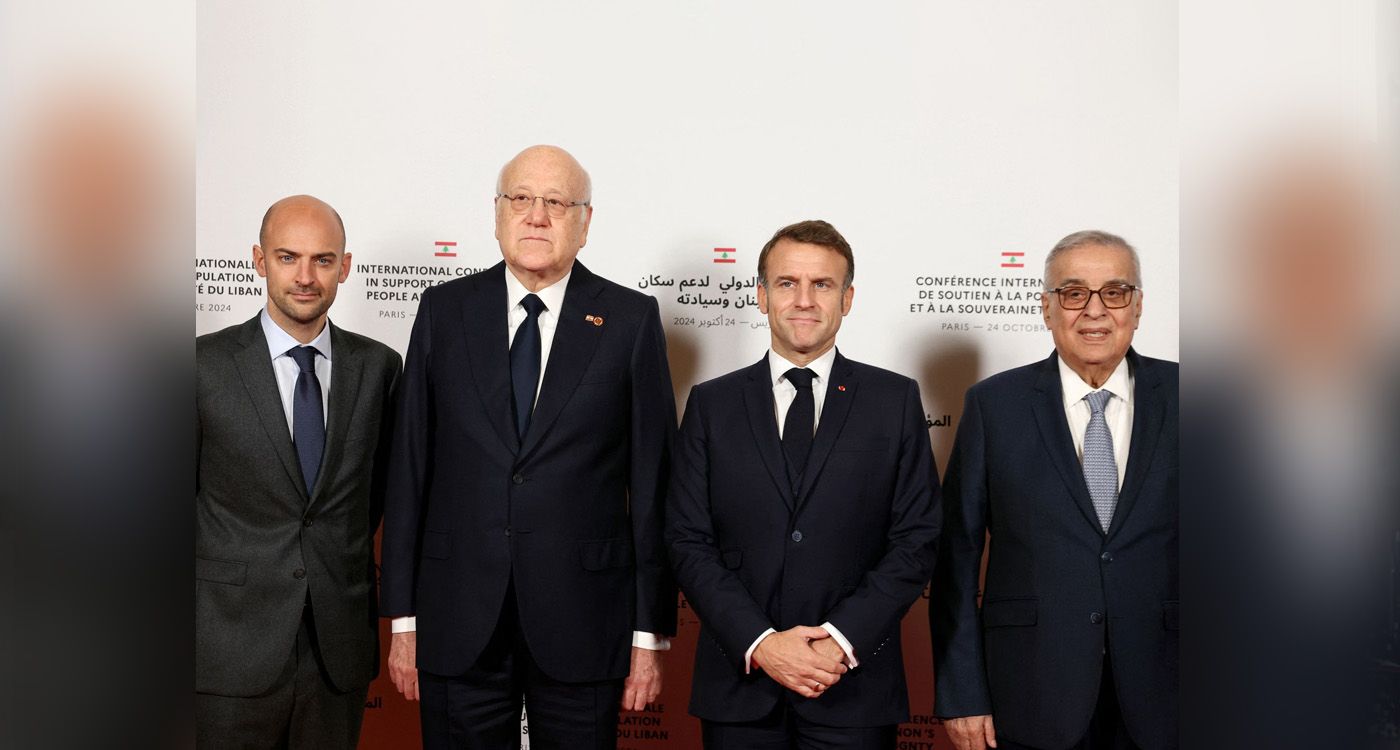From the president to donor funds, the ‘Lebanese crossroads’ for Tehran
The Paris conference allocated one billion for Lebanon, but only 200 million to the army is guaranteed. French MP to AsiaNews: ‘Countries will give nothing if transparency is not ensured’. Beirut pledges to deploy 8,000 soldiers south of the Litani. Macron's warning: ‘Israel knows from experience that military success is not necessarily a victory in the Land of the Cedars’.
Beirut (AsiaNews) - ‘Lebanon is always bigger than itself’. This was stressed by French President Emmanuel Macron in his opening speech at the international conference organised in Paris in support of the Lebanese people and their sovereignty on 24 October. A political model, the Lebanese one, which is so particular and has once again come under the spotlight for its peculiarities. To illustrate this, the French Head of State quoted the famous formula of Pope John Paul II, expressed in October 1989 in a letter to all the bishops of the Catholic Church that: ‘Lebanon is more than a country, it is a message of freedom and an example of pluralism for the East as well as the West’.
The meeting ended with a package of one billion dollars: 800 million in urgent humanitarian aid and 200 million in additional funds for the Lebanese armed forces. In return, the Beirut government pledged to deploy 8,000 soldiers south of the Litani river.
On the political level, the conference allowed the French head of state to reiterate, along with his attachment to Lebanon, the four truths concerning Iran and Israel. ‘I bitterly regret,’ stressed the Elysée tenant, ‘that Iran has engaged Hezbollah against Israel, when it was in Lebanon's interest to stay out of the Gaza conflict. I regret that Israel continues its military operations in Lebanon and the number of civilian casualties continues to rise. The need remains for Hezbollah to end its attacks against Israel, whatever the pretext. Israel knows from experience that military success is not necessarily a victory in Lebanon'.
Speaking at the conference, Monsignor Miroslaw Wachowski, the Vatican's Under-Secretary for Relations with States, also recalled why Lebanon deserves to be defended: ‘The Holy See is convinced that Lebanon is a nation in which the concept of harmonious coexistence among its different religious communities is an integral aspect of its identity’. Maronite Patriarch Card. Beshara Raï welcomed the fact that the conference had drawn up an ideal ‘roadmap’ for exiting the crisis, linking a ceasefire, the deployment of troops south of the Litani river and presidential elections as essential elements.
In terms of aid, the conference exceeded its modest forecasts. However, according to a French source, the billion figure, impressive as it is, should be considered more realistically, without taking into account the 0 million earmarked for troops. The latter amount is discounted and responds to specific needs formulated by the army command: civil peace, at a time of potentially high internal tensions, and border defence.
The other 800 million should be earmarked for obvious and diverse humanitarian aid such as public health, food, education, assistance and the creation of reception centres for hundreds of thousands of displaced persons. This last point is particularly urgent, because their stay could be prolonged due to the obstacles and destruction caused by the war.
However, according to Joe Moukarzel, a French deputy abroad, the results of the conference must not overshadow the role that the cedar country must play in a perspective of internal recovery. Interviewed by AsiaNews, he points out that it is by no means ‘certain’ that the billion ‘will arrive in Lebanon. Some countries,' he explains, ’have made aid conditional on the election of a new president of the Republic, others on the proclamation of a ceasefire, but a very important condition is transparency. Donors want to know where the money is going. We have to develop a system of accountability that the Lebanese state is not yet able to achieve.
Moreover, Moukarzel continues, there is ‘a great lack of trust in the Lebanese state’. The MP, who is close to President Macron, suggests the formation of a ‘ministerial commission chaired by the Minister of the Environment, Nasser Yassine, in cooperation with the United Nations and under the supervision of France’, through which ‘this transparency should be ensured’.'All expenditure must be controlled. The minister has promised that this will happen. But he himself is still not sure whether this promise can be kept. And without this transparency, the donor countries,' he concludes, ’will give nothing.
Finally, the Paris conference also raised the issue of the presidential holiday in Lebanon, which lasts until 31 October 2022. In this regard, the undersecretary for Relations with States wished to reiterate the Vatican's position: ‘It is clear that the voice of the Maronite president of Lebanon is a necessary contribution, which is currently absent. As in the case of any nation, the appointment of a president is not just an option but a necessity [...]. The Holy See therefore believes that this institutional vacuum must be filled as soon as possible [...] and without undue interference'. The French deputy concluded by advancing a significant reservation to this request: ‘In the great regional manoeuvres underway,’ he explained, ‘Iran will not drop the Lebanese card.
12/02/2016 15:14







.png)










